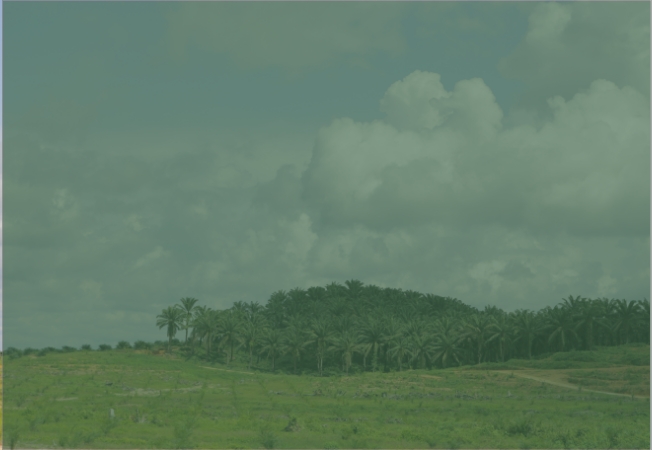Business: Production Process


Production Process

New Planting
a. New Seedlings
- High-yield seeds sourced from certified suppliers.
- Nurtured in nurseries for 9–12 months before planting.
- Land development begins after securing permits and community agreements.
- Follows RSPO’s New Planting Process to:
- Prevent deforestation.
- Protect HCV and HCS areas.
- Obtain FPIC from local communities.

b. Immature Areas
- Land preparation includes roads, bridges, and legume cover crops. Seedlings planted in a triangular pattern (143 palms/ha) or terraced on slopes.
- Palms mature in ~30 months before fruit production.
- Terracing in hilly areas.
- Legume cover crops for nitrogen fixation and soil health.
- Riparian buffers to protect waterways.
- Roads and bridges built with minimal land disturbance.
- Natural drainage systems preserved to prevent flooding.

Harvesting
- FFB hand-harvested every 10 days for optimal ripeness and oil quality.
- Harvesters trained to collect loose fruitlets for maximum CPO yield.

Processing
FFB is processed at our three oil mills, with a combined capacity of 240 tonnes per hour. The process includes:
- Sterilisation: Bunches are steamed under pressure.
- Threshing: Fruitlets are separated from the bunch.
- Pressing: CPO is extracted from the mesocarp.
- Kernel Crushing: Kernels are processed to produce Crude Palm Kernel Oil (CPKO).

Delivery
CPO and CPKO produced are transported via:
- River Barges: Products move downstream to a trans-shipment terminal. Road Tankers: During dry seasons, trucks ensure smooth logistics. From the terminal, products are shipped to domestic and international buyers.
- River Barges: Products move downstream to a trans-shipment terminal. Road Tankers: During dry seasons, trucks ensure smooth logistics. From the terminal, products are shipped to domestic and international buyers.